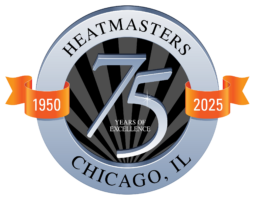 “HVAC” stands for “heating, ventilation, and air conditioning,” but a good HVAC tech knows that the efficiency of all heating and cooling systems goes well beyond the machine in your basement. Your house is a complete system, and every part of the system can affect the whole. Here are a few things to look for to know your tech’s HVAC training is sound.
“HVAC” stands for “heating, ventilation, and air conditioning,” but a good HVAC tech knows that the efficiency of all heating and cooling systems goes well beyond the machine in your basement. Your house is a complete system, and every part of the system can affect the whole. Here are a few things to look for to know your tech’s HVAC training is sound.
Your tech might examine your windows. A window doesn’t need to have a crack in the glass or a massive gap between the wall and the frame in order for it to be inefficient. Heat transfer can occur through a perfectly sound pane, if it’s not rated for energy efficiency. Many HVAC specialists will recommend double-pane glass, which maintain a pocket of air between the panes to act as a kind of natural insulator against unwanted energy loss, which helps take the strain off your central system.
Good HVAC training means that your tech might not even stay inside the house to look for potential inefficiencies. Large shade trees can filter out a huge percentage of UV rays that might otherwise enter through your windows and be converted to heat. And with or without shade trees, by installing awnings outside your south-facing windows, you can reduce solar-produced heat in your home by an average of 71%. When combined with a UV-filtering film or adhesive tint, you can actually block out over 95% of the summer heat you would otherwise gain from sunlight. And in the winter? You can remove the film and close the awning to let all of that toasty warm heat back into your home, giving your heater a break.
Of course, you should always have you tech in for regular checkups on your HVAC system itself. Regular maintenance can help prevent problems from happening in the first place, or at least catch small problems before the become larger, more expensive ones.

